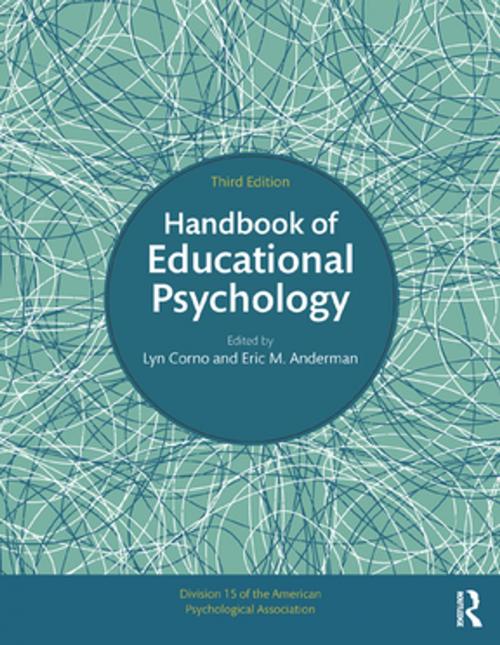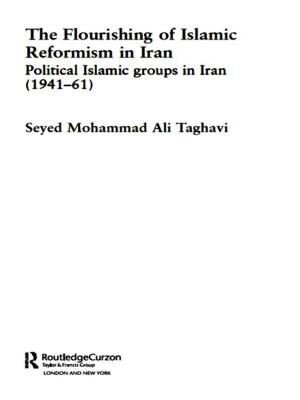Handbook of Educational Psychology
Nonfiction, Reference & Language, Education & Teaching, Educational Theory, Educational Psychology| Author: | ISBN: | 9781317420552 | |
| Publisher: | Taylor and Francis | Publication: | July 6, 2015 |
| Imprint: | Routledge | Language: | English |
| Author: | |
| ISBN: | 9781317420552 |
| Publisher: | Taylor and Francis |
| Publication: | July 6, 2015 |
| Imprint: | Routledge |
| Language: | English |
The third edition of the Handbook of Educational Psychology is sponsored by Division 15 of the American Psychological Association. In this volume, thirty chapters address new developments in theory and research methods while honoring the legacy of the field’s past. A diverse group of recognized scholars within and outside the U.S. provide integrative reviews and critical syntheses of developments in the substantive areas of psychological inquiry in education, functional processes for learning, learner readiness and development, building knowledge and subject matter expertise, and the learning and task environment. New chapters in this edition cover topics such as learning sciences research, latent variable models, data analytics, neuropsychology, relations between emotion, motivation, and volition (EMOVO), scientific literacy, sociocultural perspectives on learning, dialogic instruction, and networked learning. Expanded treatment has been given to relevant individual differences, underlying processes, and new research on subject matter acquisition.
The Handbook of Educational Psychology, Third Edition, provides an indispensable reference volume for scholars in education and the learning sciences, broadly conceived, as well as for teacher educators, practicing teachers, policy makers and the academic libraries serving these audiences. It is also appropriate for graduate level courses in educational psychology, human learning and motivation, the learning sciences, and psychological research methods in education and psychology.
The third edition of the Handbook of Educational Psychology is sponsored by Division 15 of the American Psychological Association. In this volume, thirty chapters address new developments in theory and research methods while honoring the legacy of the field’s past. A diverse group of recognized scholars within and outside the U.S. provide integrative reviews and critical syntheses of developments in the substantive areas of psychological inquiry in education, functional processes for learning, learner readiness and development, building knowledge and subject matter expertise, and the learning and task environment. New chapters in this edition cover topics such as learning sciences research, latent variable models, data analytics, neuropsychology, relations between emotion, motivation, and volition (EMOVO), scientific literacy, sociocultural perspectives on learning, dialogic instruction, and networked learning. Expanded treatment has been given to relevant individual differences, underlying processes, and new research on subject matter acquisition.
The Handbook of Educational Psychology, Third Edition, provides an indispensable reference volume for scholars in education and the learning sciences, broadly conceived, as well as for teacher educators, practicing teachers, policy makers and the academic libraries serving these audiences. It is also appropriate for graduate level courses in educational psychology, human learning and motivation, the learning sciences, and psychological research methods in education and psychology.















